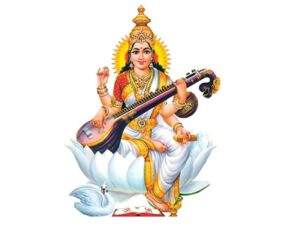
Role & Vision
Shri Saraswati Bhuvan Shikshan Sanstha was established in 1915 with the role of awakening national sentiment among students by imparting education in ‘Marathi medium’ during the pre-independence period.
After independence, especially from 1955, the organization expanded by opening branches outside Aurangabad. This was an important step towards fulfilling the goal of universal education, starting colleges to promote education in 1963.
The government gradually contributed to the education sector by suppoting the grant-in-aid system. The organization also benefited from it. Despite being under the control of the government, the organization took initiative for development. From 1991, the winds of economic liberalization started blowing in the country. The government has decided to reduce its financial responsibilities.
New courses are coming up in the education sector. It has become necessary to combine traditional courses and new courses. This will have to be done through financial self-reliance. New avenues of self-reliance will have to be found.
While doing all this, it is important to take note of the concerns that have arisen in the education sector. In this field, instead of harmony, discord has arisen among various elements. To end this atmosphere and restart the era of goodwill, harmony and co-operation, we will have to continuously make proactive and progressive experiments to play our part in the nation building and the restructuring society.
Shri Saraswati Bhuvan Shikshan Sanstha wants to move forward in future by accepting this role in education and is determining the direction of its work by adopting the following approach.
a) It is the duty of this educational institution to strive for all-round development of every person and create human resources for every area of national development.
b) All elements in the education sector should co-operate with each other and strive for excellence, high skills and new life values in every student.
c) Various elements in the education sector should consider their rights and entitlements in the above broader context.
d) The educational institution should work by taking into account that the activities of education development depend on the basic elements of innovation, commitment to nationalism, work ethic and initiative.
Objectives
1) To make ‘education’ an effective tool for human prosperity and social transformation and character building.
a) To pursue democratic and social values, national integration, so that the students are recognized as responsible citizens in the society through teaching and activities of the institutions.
b) Education being the main component of this transformation, to consider the teacher as an important colleague and to increase cooperation between her and the institution.
c) Since the focus of education is the ‘student’, to achieve harmony in the activities of parents, teachers, institution administrators and the government for his all-round development.
2) To increase the quality of each school and college of the institution through mutual co-operation.
3) To preserve and enhance the initiative and educational autonomy necessary for this institution to become a center of cultural development and social transformation and to resolve the difficulties encountered during the process.
4) To organize parents’ meetings, educational exhibitions, conferences, and to publish educational information leaflets, books and magazines, to obtain the co-operation of the educational sector components such as students, teachers, parents, institution, administrators and the government.
5) To make the academic committees of teachers who have accepted these commitments and objectives of education more active in each school and college of the organization.
6) To expand the concepts of school-college groups and school-school groups and make them useful.
7) To make the research committee of the organization active to promote and support action-oriented research, keeping in mind the needs of the Marathwada region.
8) While expanding its work, to give priority to educational activities that promote vocational, industrial, technical, scientific education and entrepreneurship.
9) To protect the legitimate rights of this educational institution, to represent it at the government and other levels in the field of education, to co-operate and support the schools and colleges of the organization in obtaining necessary concessions for the development of the educational sector.
10) To present its educational vision and program before the government and the society, keeping in mind the hopes and aspirations of the society.
11) To raise necessary funds through deposits, donations, fees and other similar means to make the organization self-reliant and to utilize the available resources for its development.
12) To accept membership of educational organizations at district, divisional, state and national levels that have similar objectives and programs as the organization and to co-operate in their work that is not in conflict with the objectives of the organization.
13) To strive for the diverse development of Marathi and Hindi languages and to develop modern technology.
14) To establish institutions for the fullfilment of objectives like Schools, Teacher Training Schools, Physical Training Schools, Colleges, Hostels and likewise.
15) To do all things necessary and incidental to the fulfillment of all the above objectives.
16) The organization will conduct its activities for all without any discrimination on the basis of religion, caste, gender, etc. No activity will be conducted for the purpose of making profit.

 : 0240-23331240, 2354020 (Fax)
: 0240-23331240, 2354020 (Fax)  : sbcentraloffice@gmail.
: sbcentraloffice@gmail.